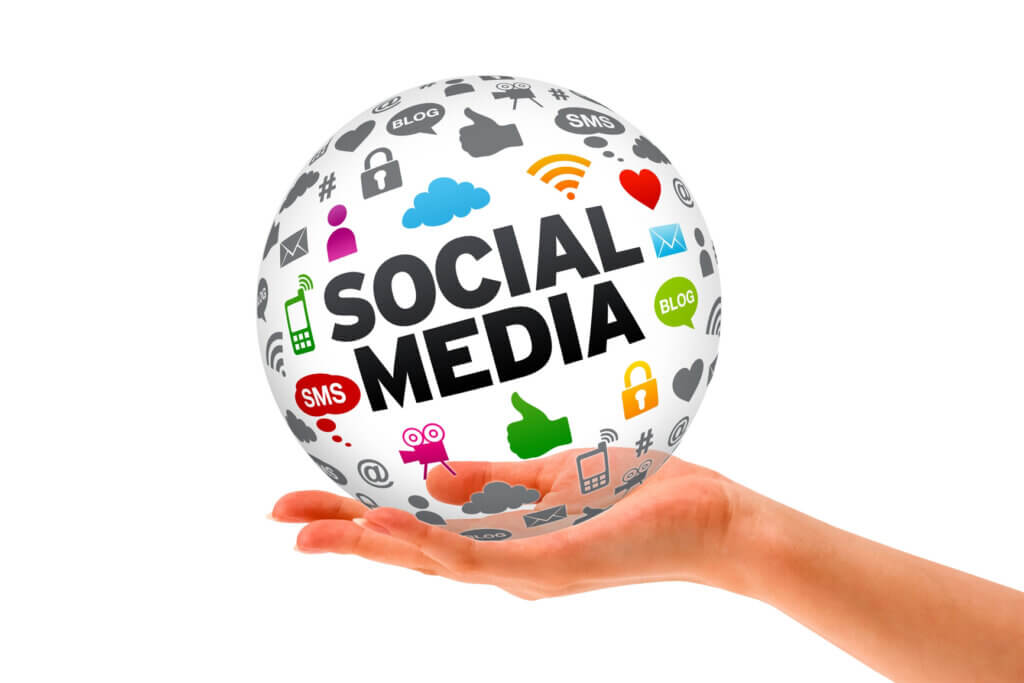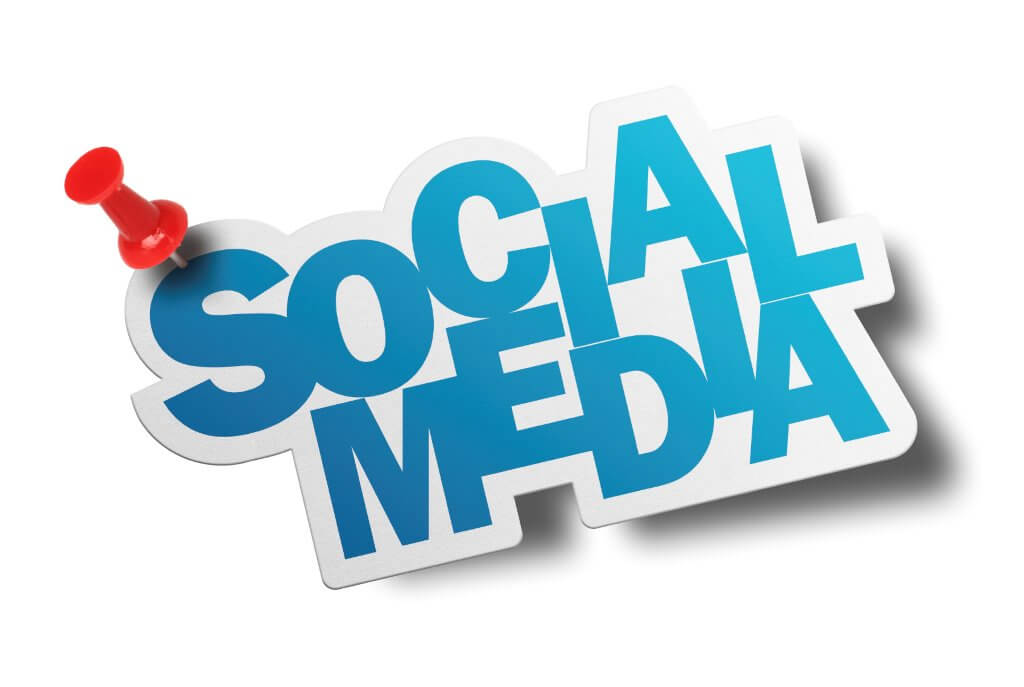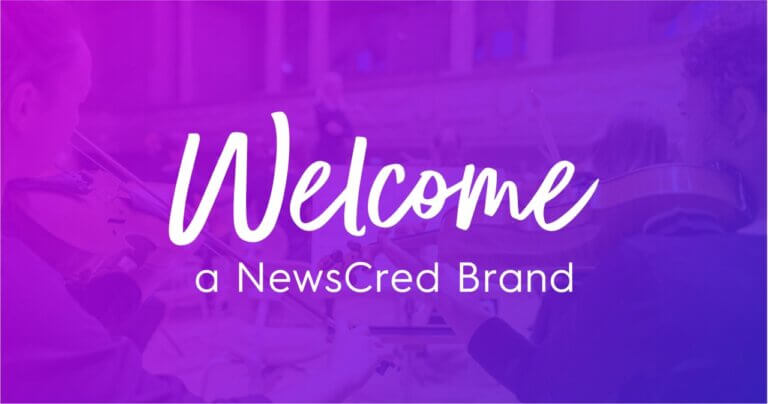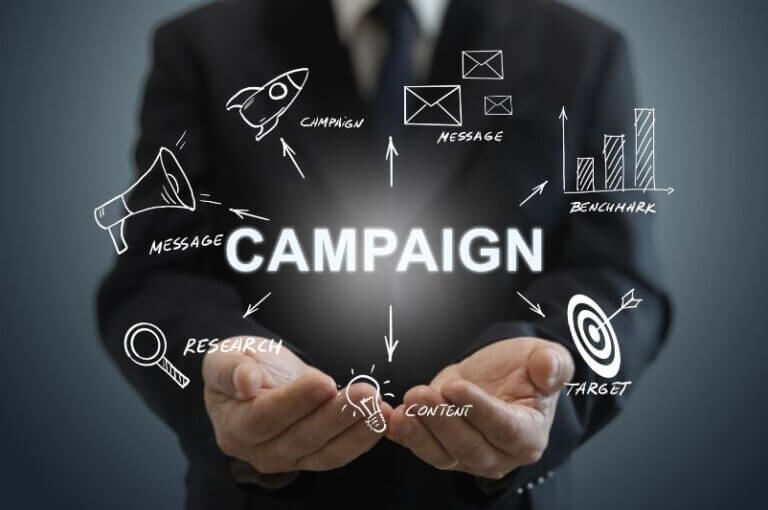Social Media
Social media has become an integral part of our daily lives, with billions worldwide using platforms like Facebook, Twitter, and Instagram to connect with friends, family, and colleagues. This article will explore the history of social media, its importance in today’s world, and its impact on various aspects of society.
First, let’s define what social media is. Social media refers to online platforms that allow people to create, share, and exchange information, ideas, and opinions through virtual communities and networks. Social media platforms can take many forms, including social networking sites, blogs, microblogs, photo-sharing apps, video-sharing apps, and messaging apps.
The history of social media can be traced back to the early days of the internet. The first social media platform, Six Degrees, was launched in 1997 and allowed users to create profiles and connect with friends. Other early social media platforms included Friendster and MySpace, which gained popularity in the early 2000s. However, it wasn’t until the launch of Facebook in 2004 that social media began to take off.
Today, social media is an essential part of our daily lives. It’s hard to imagine a world without it. Here are some of the reasons why social media is so important:
- Communication: Social media platforms allow us to communicate with people worldwide, regardless of distance or time zones. We can use social media to stay in touch with friends and family, collaborate with colleagues, and connect with like-minded people.
- Entertainment: Social media platforms also provide entertainment, with many users turning to platforms like Instagram and TikTok for videos, music, and memes.
- News and Information: Social media has become a significant source of news and information, with many people turning to platforms like Twitter for breaking news and updates.
- Marketing: Social media is also a powerful tool for businesses and marketers, who can use platforms like Facebook and Instagram to reach new customers and promote their products or services.
However, social media is not without its downsides. Here are some of the potential risks and negative impacts of social media:
- Cyberbullying: Social media can be a breeding ground for cyberbullying and online harassment, which can have severe consequences for victims.
- Privacy: Social media platforms collect vast amounts of user data, which can raise concerns about privacy and data security.
- Addiction: Social media can be addictive, with some users finding it hard to disconnect from their devices and take a break from scrolling through their feeds.
- Misinformation: Social media can also be a breeding ground for fake news and misinformation, which can seriously affect individuals and society.
In conclusion, social media has become an integral part of our daily lives, with billions worldwide using platforms like Facebook, Twitter, and Instagram to connect with others and access information. While social media has many benefits, it’s essential to be aware of the potential risks and negative impacts and use it responsibly and carefully.
Popular Social Media Platforms
Social media has become an essential part of our daily lives, and people use countless platforms to connect with others, share information, and express themselves. This article will explore some of the most popular social media platforms, including Facebook, Twitter, Instagram, and TikTok, their features, user demographics, and potential benefits and drawbacks.
Facebook:
Facebook is one of the oldest and most widely used social media platforms, with over 2.8 billion monthly active users. Here are some of the key features of Facebook:
- News Feed: Facebook’s News Feed is the central hub where users see updates from friends, family, and the pages they follow.
- Groups: Facebook allows users to join or create groups based on shared interests or affiliations.
- Events: Users can create and RSVP to events on Facebook.
- Messenger: Facebook’s messaging app allows users to send direct messages to friends and family.
Facebook’s user demographics skew slightly older, with 74% of U.S. users aged 18-49. The platform is also more prevalent among women, with 56% of U.S. women using Facebook compared to 48% of U.S. men.
Twitter:
Twitter is a social media platform that allows users to share short messages called tweets. Here are some of the key features of Twitter:
- Tweets: Users can share tweets of up to 280 characters, including links, photos, and videos.
- Retweets: Users can share and amplify other users’ tweets by retweeting them to their followers.
- Hashtags: Twitter uses hashtags to categorize tweets by topic or theme.
- Lists: Users can create lists to organize the accounts they follow.
Twitter’s user demographics skew slightly younger, with 38% of U.S. users aged 18-29. The platform is also more prevalent among men, with 24% of U.S. men using Twitter compared to 21% of U.S. women.
Instagram:
Instagram is a photo and video-sharing app popular among younger users. Here are some of the critical features of Instagram:
- Feed: Instagram’s feed displays photos and videos from the accounts that users follow.
- Stories: Users can share short, brief stories that disappear after 24 hours.
- Reels: Instagram’s reels feature allows users to create short videos set to music.
- IGTV: Instagram’s IGTV feature allows users to share longer-form videos.
Instagram’s user demographics skew younger, with 71% of U.S. users aged 18-29. The platform is also more prevalent among women, with 43% of U.S. women using Instagram than 31% of U.S. men.
TikTok:
TikTok is a short-form video-sharing app that has exploded in popularity recently. Here are some of the critical features of TikTok:
- For You page: TikTok’s For You page displays videos recommended to users based on their viewing history and engagement.
- Duet: Users can create “duets” with other users, recording a video alongside an existing one.
- Effects: TikTok’s products allow users to add filters and special effects to their videos.
- Sounds: Users can add music and other sounds to their videos.
TikTok’s user demographics skew younger, with 62% of U.S. users aged 10-29. The platform is equally popular among men and women, with 31% of U.S. men and 33% of U.S. women using TikTok.
In conclusion, social media platforms like Facebook, Twitter, Instagram, and TikTok have become essential tools for communication, entertainment, and self-expression.
Social Media Marketing
Social media has become an important marketing tool for businesses of all sizes. With billions of people using social media platforms daily, it’s a great way to reach a large and diverse audience. This article will explore the benefits and challenges of marketing on social media and some tips for creating a successful social media strategy.
Benefits of Social Media Marketing:
- Increased Brand Awareness: Social media platforms are a great way to reach new audiences and increase brand awareness. Businesses can increase their visibility and grow their following by sharing content and engaging with users.
- Cost-Effective: Social media marketing is often more cost-effective than traditional forms of advertising, making it an attractive option for small businesses and startups.
- Audience Insights: Social media platforms provide businesses valuable insights into their audience’s demographics, interests, and behavior. This information can be used to create targeted campaigns that resonate with users.
- Increased Website Traffic: Businesses can drive traffic and increase conversions by sharing links to their website.
Challenges of Social Media Marketing:
- Competition: So many businesses use social media, and standing out and getting noticed can be challenging. Creating unique and engaging content is essential to capture users’ attention.
- Time-Consuming: Managing multiple social media accounts and creating content can be time-consuming and challenging for businesses with limited resources.
- Negative Feedback: Social media can be a double-edged sword, as negative feedback and reviews can quickly go viral and damage a business’s reputation. Having a plan in place for handling negative comments and reviews is essential.
Tips for Creating a Successful Social Media Strategy:
- Set Goals: Before getting started, defining your social media marketing goals is essential. Are you looking to increase brand awareness, drive website traffic, or boost sales? Your goals will inform your strategy and help you measure success.
- Know Your Audience: Understanding your audience’s demographics, interests, and behavior is crucial for creating targeted campaigns that resonate with users.
- Create Engaging Content: To stand out on social media, it’s essential to create content that is unique, informative, and visually appealing. Use a variety of formats, such as videos, images, and infographics, to keep users engaged.
- Engage with Users: Social media is a two-way conversation. Engage with your followers by responding to comments and messages and sharing user-generated content.
- Measure and Adjust: It’s essential to track your social media metrics, such as engagement rates and website traffic, to measure the success of your campaigns. Use this data to adjust your strategy and improve future campaigns.
In conclusion, social media marketing can be a powerful tool for businesses looking to increase brand awareness, drive website traffic, and boost sales. By understanding the benefits and challenges of social media marketing and following these tips for creating a successful social media strategy, businesses can reach a large and diverse audience and achieve their marketing goals.
Social Media and Privacy
Social media platforms have become integral to our daily lives, allowing us to connect with friends and family, share information and photos, and stay up-to-date on news and events. However, as we spend more time online, we must be aware of the privacy risks associated with social media use. In this article, we’ll explore the privacy risks of social media and provide tips for protecting your personal information.
Privacy Risks of Social Media:
- Data Collection: Social media platforms collect vast user data, including personal information, location data, and browsing history. This data can be used for targeted advertising and other purposes and may be shared with third parties.
- Hacking and Cybercrime: Social media accounts can be vulnerable to hacking and cybercrime, including phishing scams, malware, and identity theft.
- Reputation Damage: Social media posts can be easily shared and go viral, potentially damaging a user’s reputation or career.
- Privacy Settings: Many users are unaware of the privacy settings on their social media accounts, which can expose personal information to the public or third parties.
Tips for Protecting Your Personal Information:
- Review Privacy Settings: Review your social media privacy settings and ensure you are comfortable sharing the information. Consider limiting the intake visible to the public, and be cautious about sharing personal information with third-party apps or websites.
- Use Strong Passwords: Use a unique and strong password for each social media account, and consider using a password manager to keep track of them.
- Be Careful What You Share: Be cautious about the information you share on social media, including personal information, location data, and photos. Consider the potential risks before posting anything online.
- Be Wary of Scams: Be wary of scams and phishing attempts on social media. Don’t click on suspicious links or provide personal information to unknown parties.
- Keep Your Accounts Secure: Keep your social media accounts secure by enabling two-factor authentication, updating software and apps regularly, and avoiding public Wi-Fi networks.
In conclusion, while social media platforms provide many benefits, it’s essential to be aware of the privacy risks associated with their use. By understanding the privacy risks of social media and taking steps to protect your personal information, you can use these platforms safely and confidently. Remember to review your privacy settings, use strong passwords, be careful about what you share, be wary of scams, and keep your accounts secure.
Social Media and Mental Health
Social media platforms have transformed how we connect and share information. However, while social media has many benefits, it can also negatively affect mental health. In this article, we’ll explore the ways social media can impact mental health and provide tips for maintaining a healthy relationship with social media.
Effects of Social Media on Mental Health:
- Anxiety and Depression: Research has found a link between social media use and symptoms of anxiety and depression. Constant exposure to the highlight reels of others’ lives can lead to feelings of inadequacy, low self-esteem, and anxiety.
- Addiction: Social media can be addictive, with users spending hours scrolling through feeds and checking notifications. This can lead to guilt, shame, and neglect of other vital aspects of life.
- Cyberbullying: Social media can be a breeding ground for cyberbullying, with users targeted for their appearance, beliefs, or lifestyle choices. Cyberbullying can lead to feelings of isolation, depression, and even suicide.
- Disrupted Sleep: The blue light emitted by screens can disrupt sleep patterns, leading to insomnia and other sleep disorders. Late-night scrolling can also interfere with relaxation and create feelings of anxiety.
Tips for Maintaining a Healthy Relationship with Social Media:
- Limit Screen Time: Limit the time spent on social media each day, and consider taking a break from social media altogether for some time. This can help reduce feelings of addiction and anxiety.
- Practice Self-Care: Make time for self-care activities, such as exercise, meditation, and spending time with loved ones. This can help to reduce stress and anxiety and promote mental health.
- Be Mindful of Social Media Use: Be mindful of your social media use, and avoid comparing yourself to others. Recognize that social media only provides a limited view of others’ lives and does not accurately represent reality.
- Seek Support: If you experience depression or anxiety related to social media use, consider seeking support from a mental health professional or support group.
In conclusion, social media has many benefits, but it’s essential to be aware of its potential adverse effects on mental health. By limiting screen time, practicing self-care, being mindful of social media use, and seeking support, we can maintain a healthy relationship with social media and protect our mental health. Remember to take breaks, focus on self-care, be mindful of social media use, and seek support if needed.
Social Media and Politics
Social media has become an integral part of modern politics, with politicians and citizens using platforms like Twitter, Facebook, and Instagram to share news and opinions and engage with others. However, the relationship between social media and politics is not always straightforward, and social media can impact political discourse and decision-making in several ways.
Here are some key points to consider when examining the relationship between social media and politics:
- Amplification of Opinions: Social media has given a voice to people who may not have had a platform otherwise, allowing for diverse opinions and perspectives to be shared. However, it can also amplify extreme views, creating echo chambers and contributing to a polarized political climate.
- Disinformation and Misinformation: Social media has made it easier for false information to be shared and spread, potentially impacting political decisions and outcomes. Disinformation and misinformation can be spread intentionally, such as by foreign actors attempting to interfere in elections, or unintentionally, such as by users sharing inaccurate or misleading news stories.
- Political Campaigning: Social media has become an essential tool for political campaigning, with candidates using platforms like Twitter and Facebook to engage with voters and spread their message. However, this can also lead to a saturation of political content, potentially leading to voter fatigue or disengagement.
- Data Privacy and Security: Social media platforms collect vast amounts of user data, which can be used by political campaigns to target voters with tailored messaging. This has raised concerns about data privacy and security, with questions about the ethics of data use and the potential for political manipulation.
- Citizen Engagement: Social media can increase citizen engagement with politics, allowing for greater access to information, transparency, and the ability to hold politicians accountable. However, it can also create a culture of performative activism, where users prioritize the appearance of engagement over actual impact.
Given the complex relationship between social media and politics, it’s essential to approach the use of social media in politics with a critical lens. Here are some ways we can do this:
- Fact-checking: When engaging with political content on social media, it’s essential to fact-check information before sharing it. This can help to prevent the spread of disinformation and misinformation.
- Diversify Your Sources: To avoid being trapped in an echo chamber, seek information from various sources, including those with different political viewpoints.
- Protect Your Data: Be aware of how your data is being collected and used by social media platforms, and take steps to protect your data privacy.
- Engage Critically: When engaging with political content on social media, approach it critically, and question the motivations and potential biases of those sharing it.
In conclusion, social media has transformed the political landscape, creating opportunities and challenges for citizen engagement, political campaigning, and the dissemination of information. By approaching social media in politics with a critical lens and taking steps to protect our data and engage critically with political content, we can ensure that social media plays a positive role in our political discourse and decision-making.
Future of Social Media
The future of social media is an exciting and constantly evolving topic. As technology advances and user behaviors change, social media platforms must adapt and innovate to stay relevant. Here are some key trends and predictions for the future of social media:
- Augmented Reality: Augmented reality (A.R.) is expected to become increasingly prevalent in social media, with users able to engage with virtual objects and environments in real time. This could lead to a new era of immersive social media experiences, with users able to connect in entirely new ways.
- Niche Platforms: While large platforms like Facebook and Twitter will likely remain dominant shortly, there is also expected to be an increase in the popularity of niche platforms that cater to specific interests and communities. These platforms may provide more targeted and tailored content, leading to deeper engagement and meaningful connections.
- Social Commerce: Social media is becoming an increasingly important channel for e-commerce, with many platforms integrating shopping features directly into their platforms. This trend is expected to continue, with social media playing an even more significant role in the future of online shopping.
- Privacy and Security: As data privacy and security concerns grow, social media platforms must take increasingly stringent measures to protect user data. This may involve the development of new privacy-focused features and greater transparency around data collection and use.
- Social Good: There is a growing trend towards using social media for social good, with users and brands leveraging their platforms to promote social causes and make a positive impact. This trend is expected to continue, with social media platforms playing an increasingly important role in shaping public opinion and driving change.
- Artificial Intelligence: Artificial intelligence (A.I.) is expected to play an increasingly important role in the future of social media. This could include using A.I. to personalize content, improve user experience, and moderate content and behavior on the platform.
- Video Content: Video content is becoming increasingly popular on social media, with platforms like TikTok and Instagram emphasizing short-form video content. This trend is expected to continue, with video becoming an even more dominant form of content on social media in the future.
In conclusion, the future of social media is exciting and full of potential. As technology advances and user behaviors change, social media platforms must adapt and innovate to stay relevant. From the rise of augmented reality and niche platforms to the increasing importance of social commerce and social good, many trends and predictions will shape social media’s future. By staying current with these trends and adopting a forward-thinking mindset, we can continue to make the most of the opportunities presented by social media in the years to come.
Conclusion
Social media has become an integral part of our daily lives. Social media has revolutionized communication and interaction from staying in touch with friends and family to networking for business and sharing our experiences. In this article, we’ve explored various aspects of social media, including its history, popular platforms, marketing strategies, privacy concerns, impact on mental health, role in politics, and the industry’s future. Here are some key takeaways from our discussion:
- Social media is constantly evolving: Social media is a rapidly changing landscape that requires continuous learning and adaptation. New platforms emerge, user behaviors become, and marketing strategies shift. Staying current with the latest trends and best practices is essential to stay ahead of the game.
- Social media can be both positive and negative: While social media has many benefits, it can also have adverse effects on mental health, privacy, and political discourse. It’s essential to be aware of these potential risks and take steps to mitigate them, such as by setting healthy boundaries and using social media responsibly.
- Social media is a powerful tool for businesses: It gives companies unprecedented access to their target audiences, allowing them to build brand awareness, drive traffic to their websites, and even generate direct sales. To make the most of social media for business, developing a strategic marketing plan and using the right platforms and tactics for your target audience is essential.
- Social media is here to stay: Despite the challenges and risks associated with social media, it’s clear that the industry is here to stay. As technology advances and user behaviors evolve, social media will likely continue to play an increasingly important role in our personal and professional lives.
In conclusion, social media is a complex and multifaceted phenomenon transforming communication and interaction. By staying informed and responsible in our use of social media, we can make the most of its benefits while mitigating its potential risks. As we move into the future, we must continue learning, adapting, and innovating to fully harness social media’s power for personal and business purposes.
F.A.Q.
What Is the Use of Social Media?
Social media has many uses, both personal and professional. Here are some of the most common ways people use social media:
- Connecting with friends and family: Social media platforms like Facebook and Instagram allow people to stay in touch with their loved ones, no matter where they are. Users can share updates, photos, and videos with their friends and family and engage in conversations in real-time.
- Networking for business: LinkedIn and other professional networks allow users to connect with colleagues and potential employers, share their work experiences and achievements, and find new job opportunities.
- Promoting products and services: Businesses can use social media platforms to promote their products and services, engage with customers, and build brand awareness. This can lead to increased website traffic, sales, and customer loyalty.
- Accessing news and information: Social media platforms like Twitter and Facebook are often used as sources of news and information, allowing users to stay updated on current events and trending topics.
- Entertainment: Social media platforms like YouTube and TikTok offer a wide range of content, from funny cat videos to educational tutorials, music, and comedy. Many people use social media as a source of entertainment and relaxation.
Overall, the use of social media is diverse and multifaceted, with something for everyone. Whether you’re looking to connect with loved ones, the network for business, or find information and entertainment, social media provides a powerful platform.
Which social media channel has the most users?
As of September 2021, Facebook is the social media channel with the most users, with over 2.91 billion monthly active users worldwide. This is followed by YouTube with over 2 billion monthly active users, WhatsApp with over 2 billion monthly active users, and Instagram with over 1 billion monthly active users. Other popular social media channels include TikTok, Twitter, LinkedIn, and Snapchat. It’s important to note that the number of users on each platform can change over time as new platforms emerge and user behaviors evolve.
What is social media?
Social media refers to online platforms and tools people use to connect with others, share content, and communicate through digital channels. Social media can take many forms, including social networks like Facebook and LinkedIn, microblogging platforms like Twitter, video-sharing platforms like YouTube, and image-sharing platforms like Instagram and Pinterest.
Social media allows people to create and share content with others in their network, such as photos, videos, and text posts. It also enables users to interact with each other through comments, direct messages, and other messaging features.
Social media has become an integral part of many people’s lives, allowing them to stay in touch with friends and family, connect with new people, access news and information, and even promote businesses and brands. While social media can be a powerful tool, it raises concerns about privacy, security, and its impact on mental health and well-being.







